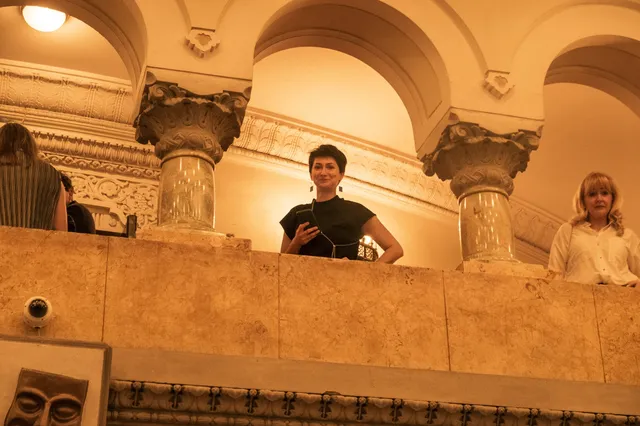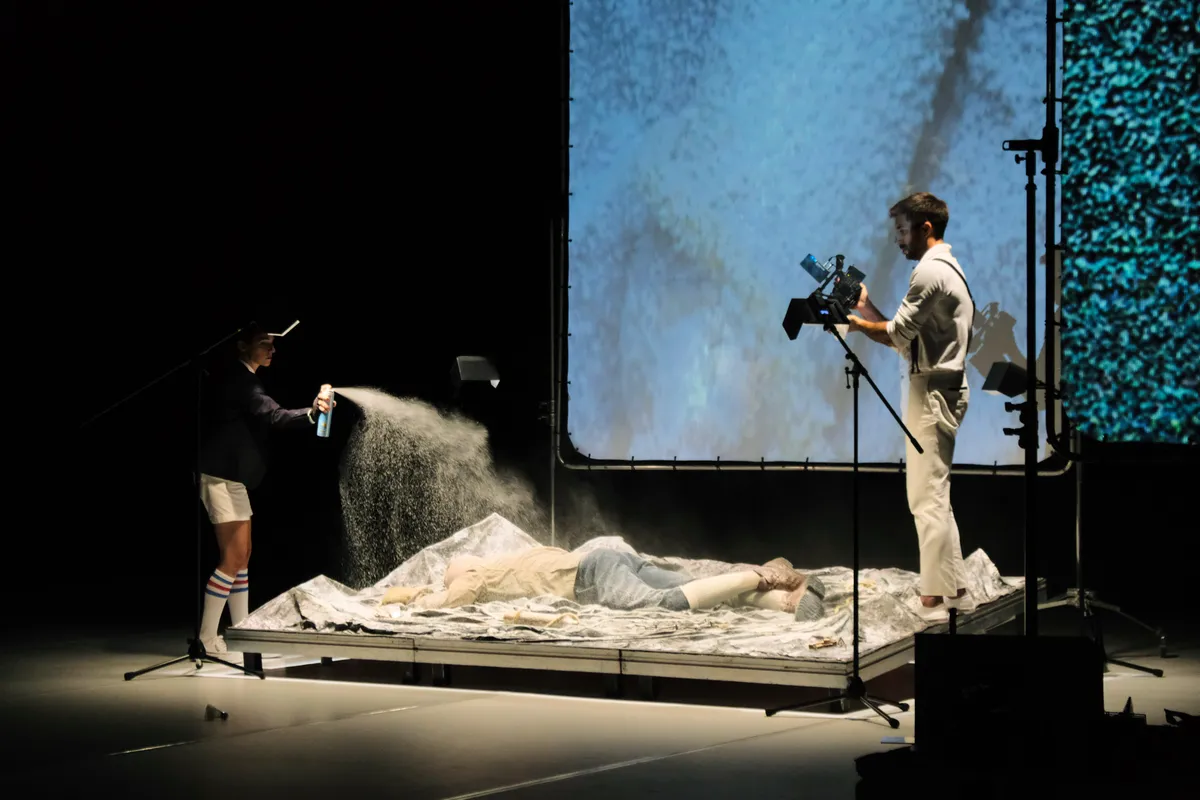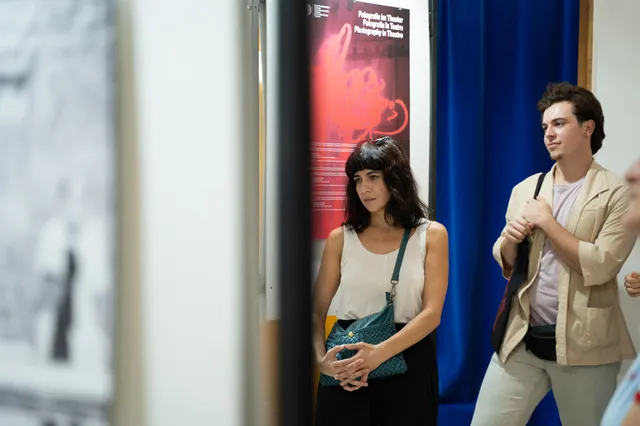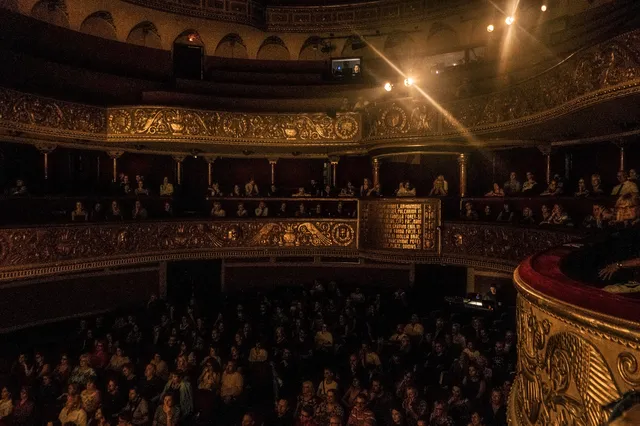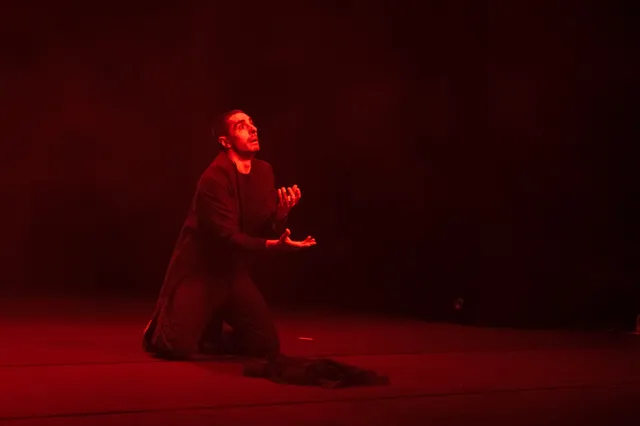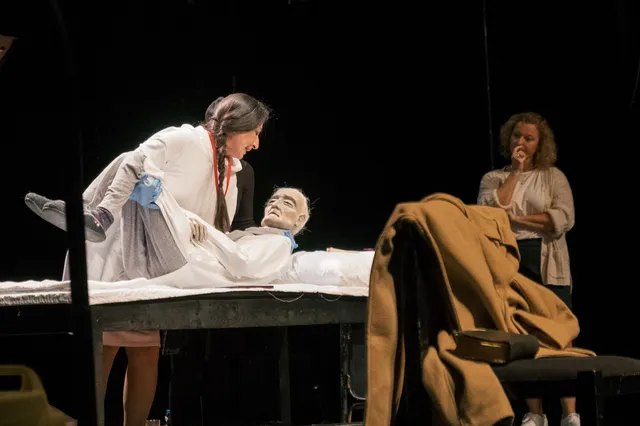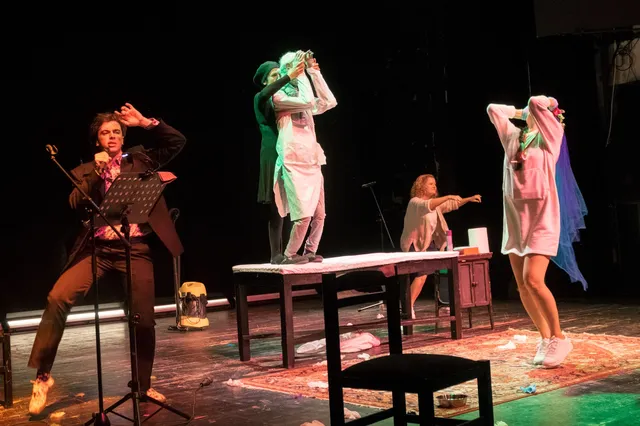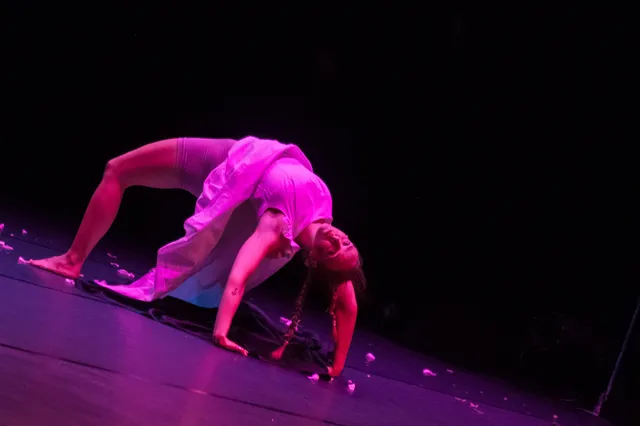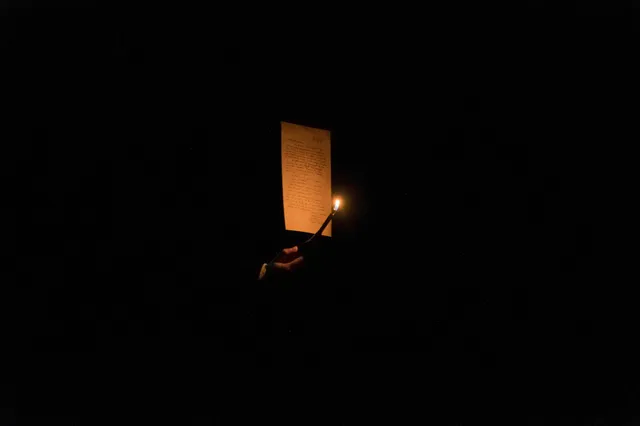Chronicle by Elena Jebelean
Today is Thursday,
September 21, and I still love you.
I also love the world, even though the show seen a few hours ago
has so clearly highlighted its shortcomings.
The Mountain reminded me that
reality is much more than a word – be it of God (the table of laws descended by
Moses from the mountain); it is much more than sound – be it of the radio (the
adaptation of H.G. Wells' SF novel, The
War of the Worlds – 1898, by director Orson Welles, in his radio show Mercury Theatre on the Air); it is
much more than an image – be it a photograph or a film (in the show, especially
photos and videos suggesting that the evidence of expeditions to conquer a
mountain peak, a country, or a planet can be
faked). Communicating about reality is a convention. The reality is
indescribable without being distorted. To cut from the real is to cheat. And in
full, the real is incomprehensible. Life is plenary. The evidence about it is
always circumstantial, fragmentary, inaccurate, and simplistic. In our attempts to stay connected, we stumble
upon omissions, lies, and betrayals – we do
not see what we see, but what we expect to see, we do not understand what is
happening, but what we expect to happen. And, unfortunately, very often, we
forget not only that the truth is not ours. We forget that it also does not
exist, that the mountain of knowledge, that is conquered heroically, with
titanic efforts, offers a misty and inconclusive horizon. Shadows of Plato's
cave are all we can distinguish, no matter how hard we try. The truth does not
exist, but suffering exists – this is undeniable.
Yes, it would
be better if we were less gullible, really sharper,
more critical of any information and prejudices that we receive by different means. And the badminton flyer is not so much
in the other's court, as one might think, but in our own. We should doubt the
certainties of others (and our own), be careful in whom/in what we trust,
distinguish between trust and faith, not become preachers of any truth. We
should keep the measure in all, think with our own heads, not affiliate with
groups/flocks.
Apparently, the show is about manipulation. About how one can present as
true something that never happened. About how beliefs are instilled in our
heads, about how we see and understand what our expectations confirm. About how
our own expectations limit us. But disinformation is much older than the
twentieth century. Perhaps the oldest misinformation/manipulation that has still been preserved is the one
related to the way in which the Trojans were fooled to bring the wooden horse, crafted by Achaeans as a carrier
of the most fierce warriors who wanted to destroy Troy inside
their fortress. The Achaeans left Sinon, one of their
fighters, behind on the beach, with the clear task of leading the Trojans to
believe that the wooden horse left there was a gift from the Greeks to the
goddess Athena. Sinon fulfilled his task: he told the Trojans that he ran away
from his people because the Achaeans wanted to sacrifice him to ensure a smooth
return route. He explained to the arrogant Trojans that the Achaeans had left
that crafted horse there, convinced that the Trojans would not be able to take
it to their fortress, thus not being able to obtain the blessing of Athens. Too
few Trojans did not let themselves be deceived – yes, because they were
invincible, because their city was unconquerable and because the gods defended them, etc. Laocoon warned them in
vain that the Greeks are dangerous even when they give gifts. In vain Elena,
who was suspicious, tried to make the Greek warriors betray their presence,
walking by the horse and imitating the voices of their wives, to make them
reveal themselves. That is, reason speaks in vain to the emotions that will
win. Cassandra's prophecy about the fall of Troy by fire is in vain – the
messages of the gods, therefore, are in vain.
The green lights in the badminton flyers remind us that the
teachings have been with us for millennia, but not in us, unfortunately.
Because we do not read the books carefully – neither those of life, nor those
of fiction. Because we see in the light of our own misunderstanding, not that
of wisdom. Because we do what we want, not what we should.
It is not about others, but about ourselves. The show is about getting to know
yourself to establish evolutionary paths. Because any small achievement is like
a mountain peak that is hard to reach. Because, in what you do, you are,
somewhat first. You are unique, no one has done the same as you, in fact.
That's why you must not let yourself be manipulated, not be blinded by screens
and phrases built by others.
The show is overwhelming. In the end, you feel like shutting
up. And this is excellent, as it forces you, silently, to think. Too much
Putin, too much artificial snow, too much ingeniously built counterfeit. Too
much noise, too much dynamism. Badminton-baseball, initially with ordinary,
white flyers, in the end flyers with green light, the green table, the red
table make you think of sports games, but also of gambling, artificial
satellites, global surveillance. The numerous screens evoke the phone, the tablet,
the computer, the TV, cinema. Blown away by images and movement, sounds and
lights, you have not even followed the actors, as in a puppet show, in which
the puppeteers remain unseen. The report is suggestively overturned – the world
is not a stage, but the stage is everyone. The whole world – including the moon
landing, touching the roof of the world – it all seems a hoax, credible due to
the effect of reality. Staging is all we can discover in the world, if we do
not prioritize the direct experience. Which is limited,
of course – how many experiences can one have
in a lifetime? But at least they are authentic.
For me, Ruth's letters to her husband, George Mallory, remained
especially authentic in the show (they are probably invented, it does not
matter – those I perceived as being pure and simple, as the truth should be and
never will be felt). They are about cherishing life, not harming yourself or
others with the dreams you nurture or the reality you live, about taking care
of your loved ones and yourself.
The afternoons with our
children in the garden, each telling the other how
we spent our day, would have been more precious for me than my photo buried
between the rocks of the peak that you may have conquered,
Dear George.
